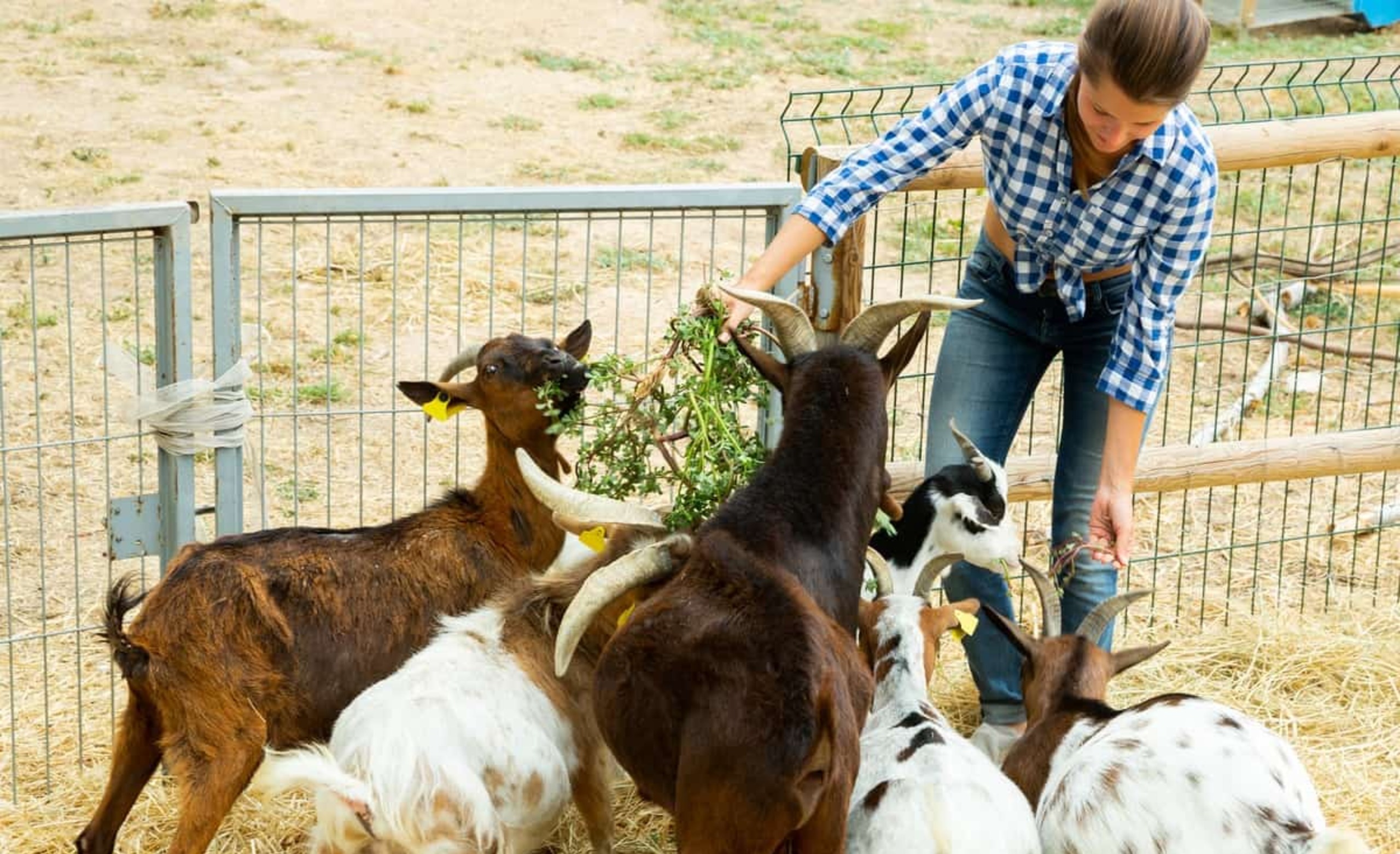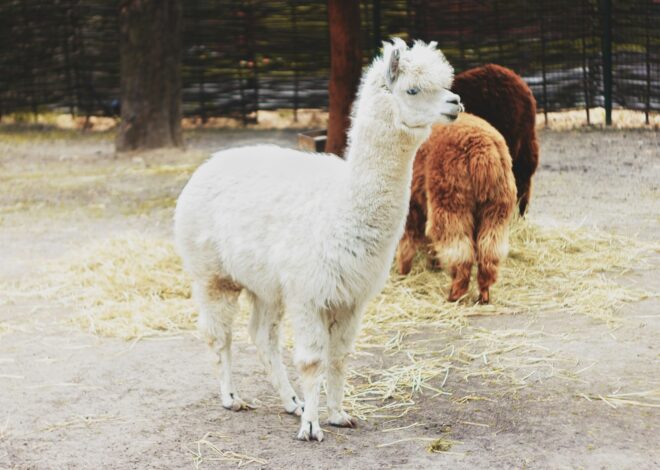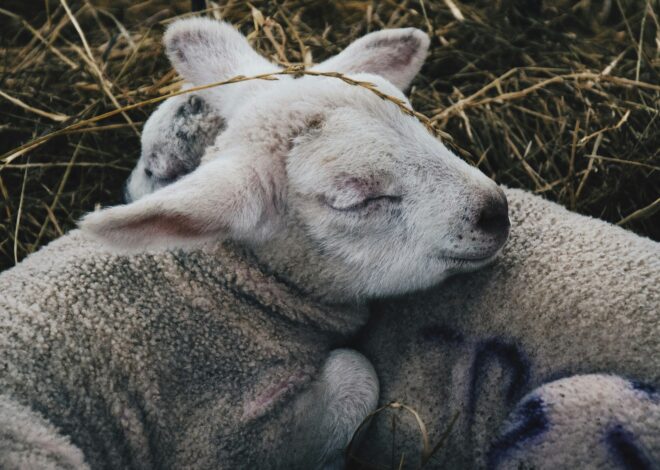
How To Raise Goats
If you’re curious about how to raise goats effectively while reaping all these rewards, you’ve come to the right place! Have you ever thought about raising goats? These charming creatures are not just adorable; they can also be a fulfilling addition to your farm or homestead.
Whether you’re looking for milk, meat, fiber, or simply companionship, goats offer a multitude of benefits that make them an excellent choice for both novice and experienced farmers alike. Imagine stepping out into your backyard to the sound of gentle bleats and the sight of playful kids frolicking around. Beyond their cuteness factor lies a wealth of practical advantages.
Goat farming is becoming increasingly popular due to its low startup costs and manageable space requirements compared to other livestock. This guide will walk you through everything from selecting the perfect breed for your needs to daily care routines that keep your herd happy and healthy. Get ready—your goat farming adventure awaits!
The Benefits of Raising Goats
Raising goats offers numerous advantages that can enhance your lifestyle and farming experience. First, they are incredibly versatile animals. Goats provide milk, meat, fiber, and even companionship. Their milk is rich in nutrients and often easier to digest than cow’s milk.
For many people, goat cheese has become a staple in their diets due to its unique flavor.Goats are also excellent foragers. They thrive on weeds and shrubs that other livestock may ignore. This natural behavior helps manage overgrown land effectively. Additionally, goats require less space compared to larger livestock like cows or horses.
This makes them ideal for small farms or homesteads where land may be limited. Raising goats can be a rewarding hobby that brings you closer to nature and fosters responsibility in children through hands-on learning experiences. You’ll find joy in watching their playful antics while knowing you’re contributing sustainably to your household needs.
Choosing the Right Breed for Your Needs
Choosing the right breed of goat is crucial for a successful farming experience. Each breed offers unique traits, so it’s essential to align your choice with your goals. If you’re interested in dairy production, consider breeds like Saanen or Nubian. They are known for their high milk yields and rich flavors.
For meat purposes, Boer goats excel in growth rates and muscle development. For fiber enthusiasts, Angora or Cashmere goats provide luxurious fibers that can be spun into beautiful yarns. If you’re looking for pets or companions, Miniature breeds such as Nigerian Dwarfs might be the perfect fit due to their friendly nature and manageable size.
Take time to research each breed’s characteristics, temperament, and care requirements before making a decision. Understanding these factors will help ensure you select goats that best suit your lifestyle and objectives on the farm.
Preparing Your Farm for New Goats:
Creating a comfortable environment is essential when preparing your farm for new goats.
– Housing
When it comes to housing goats, comfort and safety are paramount. A well-built shelter protects them from harsh weather conditions while providing a cozy space for rest.
Your goat barn should have good ventilation to prevent the buildup of moisture and odors. Windows help keep things airy, but make sure they’re secure enough to keep predators at bay.
Consider size carefully. Each goat needs approximately 15-20 square feet inside the shelter. This allows them room to move freely without feeling cramped.
Don’t forget about bedding! Straw or hay works great for cushioning their space and keeping it warm in winter months. Regular cleaning is essential; this keeps parasites away and promotes better health among your herd.
Also, ensure access to an outdoor area where they can roam during the day. Fresh air and sunshine contribute significantly to their overall wellbeing.
– Food
Food is a cornerstone of goat care. Goats are natural browsers, meaning they thrive on a varied diet that mimics their wild habits. Fresh grasses, leaves, shrubs, and trees should be readily available for them to munch on.
Supplementing their forage with high-quality hay is essential, especially during winter months when grass isn’t as accessible. Look for alfalfa or clover hay; these options are rich in nutrients.
Grain can also play a role but should be offered sparingly to avoid digestive issues. A balanced grain mix provides energy but always check the ingredients for quality.
Don’t forget minerals and vitamins! Offering mineral blocks specifically formulated for goats supports overall health. Clean water must always be within reach; hydration is key in any farm setting.
Keep treats like fruits and vegetables handy—goats love them! Just remember to limit portions since too many can upset their stomachs.
– Supplies
When you bring goats onto your farm, having the right supplies is crucial for their well-being and productivity. Start with basic items like feeding troughs and water buckets. Goats are curious creatures, so make sure these containers are sturdy.
Next on the list is fencing. Good fencing prevents escape attempts and keeps predators at bay. Choose strong materials that can withstand a goat’s natural inclination to explore.
Don’t forget about bedding! Straw or wood shavings provide comfort in their housing area and help manage waste effectively.
Health supplies also matter. Stock up on essential veterinary tools: thermometers, hoof trimmers, and dewormers should be readily available to tackle any health issues that arise.
Enrichment items like balls or climbing structures will keep them entertained. Happy goats lead to productive farms!
Daily Care and Maintenance of Goats
Daily care for goats is essential to their health and happiness. Start each day by checking on your herd. Look for signs of illness or distress, such as lethargy or changes in appetite. Ensure they have fresh water available at all times. Goats can be picky drinkers, so a clean trough encourages hydration.
Cleaning their living area is crucial as well. Remove waste regularly to prevent disease and create a pleasant environment. Feeding should include high-quality hay and any necessary grains. Monitor their eating habits since changes can indicate health issues.
Regular grooming helps keep their coats healthy and allows you to spot parasites or skin problems early on. Social interaction is vital too; spend time with them daily because goats are social animals that thrive on companionship. Engage them through play or training exercises to stimulate both mind and body.
Feeding and Nutrition Tips for Healthy Goats
Feeding goats properly is crucial for their health and productivity. Start with high-quality hay as the foundation of their diet. Grass hay, alfalfa, or clover are excellent choices rich in fiber. Introduce grains gradually to avoid digestive issues. Whole oats or goat-specific pellets can provide essential nutrients but should be offered in moderation.
Fresh, clean water must always be available. Goats drink a lot and need hydration to maintain their energy levels. Don’t forget about minerals! A balanced mineral supplement tailored for goats supports overall health and strengthens immunity.
Forages like shrubs and trees also make great snacks. Goats love browsing, so encourage them to explore different plants if it’s safe. Remember that every goat is unique; monitor their weight and adjust feed accordingly to keep them healthy and happy.
Health Care and Common Diseases in Goats
Goat health care is crucial for a thriving herd. Regular check-ups can catch issues early, ensuring your goats remain healthy and productive. Common diseases in goats include parasites like worms, which can lead to anemia and weight loss. Routine deworming helps keep these pesky invaders at bay.
Another concern is mastitis, an infection of the udder that can affect milk production. Keeping housing clean and practicing good milking hygiene minimizes this risk. Caprine arthritis encephalitis (CAE) is another serious virus impacting goat health. Testing new additions to your herd for CAE plays a vital role in prevention.
Vaccinations are essential too. Core vaccines protect against common illnesses like clostridial diseases and tetanus. A solid vaccination schedule goes a long way in maintaining overall herd health. Always monitor behavior closely; changes often signal underlying problems requiring prompt attention.
Breeding and Reproduction 101
Breeding goats can be a rewarding venture. Understanding their reproductive cycle is essential for success. Goats are seasonal breeders, typically going into heat in the fall and winter months. A female goat, or doe, usually comes into heat every 18 to 24 days. This window lasts about 24 to 48 hours.
Timing is crucial if you want to breed successfully. When selecting a buck for breeding, consider his lineage and health history. A sound genetic background will contribute positively to your herd. Once the doe has been bred, gestation lasts approximately five months.
During this time, proper nutrition is vital for both her health and that of her kids. After kidding, provide a safe space for mother and kids to bond and thrive. Monitoring them closely during this period ensures all goes smoothly as they adjust to life together in your farm environment.
Marketing and Selling Your Goat Products
Marketing your goat products can be an exciting venture. Start by identifying your target audience. Are they local consumers, restaurants, or online shoppers? Understanding your niche will help shape your approach. Social media platforms are excellent tools for promotion.
Share vibrant photos of your goats and their products on Instagram or Facebook. Engage with followers through stories and live videos to showcase daily farm life. Consider setting up a booth at local farmers’ markets. This not only builds community connections but allows potential customers to taste samples of cheese or yogurt made from your goats’ milk.
Don’t overlook the power of word-of-mouth marketing. Encourage satisfied customers to share their experiences with friends and family. Explore partnerships with local businesses like cafes or health food stores that might want to stock your products. Building relationships within the community enhances visibility and strengthens customer loyalty.
Tips for First-Time Goat Farmers
Starting your journey as a goat farmer can be both exciting and overwhelming. One of the best tips for first-time farmers is to educate yourself. Read books, attend workshops, and join local farming groups to gather valuable insights.
Begin with just a few goats. This allows you to learn their behaviors without feeling overwhelmed by a larger herd right away. Observe how they interact with each other and their environment. Invest in quality fencing. Goats are natural escape artists, so good fencing is essential to keeping them safe and contained.
Keep track of their health regularly. Know the signs of common illnesses so you can act quickly if needed. Consider starting with friendly breeds like Nigerian Dwarfs or Pygmy goats, which tend to have more sociable temperaments. Enjoy the process! Building relationships with your goats can lead to rewarding experiences on your farm.
Conclusion: Raising Your Own Goats
Raising your own goats can be a rewarding and fulfilling experience. These animals are not only versatile but also bring joy to farm life with their playful personalities. As you embark on this journey, remember the importance of proper care, nutrition, and health management.
Whether you’re interested in producing milk, meat, or fiber—or simply want some friendly companions—understanding their needs is essential for success. Creating a suitable environment, providing quality food, and staying informed about common health issues will make all the difference.
Engaging with your goats daily fosters trust and strengthens your bond. You’ll discover that each goat has its unique personality traits that can enrich your farming experience.
As you learn more about goat husbandry over time, you’ll find yourself becoming more confident in raising them. Remember to stay connected with fellow farmers and resources within the community for ongoing support.
Embrace the adventure of goat farming; it opens up numerous opportunities for growth—both personally and professionally. Your investment in these remarkable creatures could lead to bountiful rewards in every aspect of farm life.



